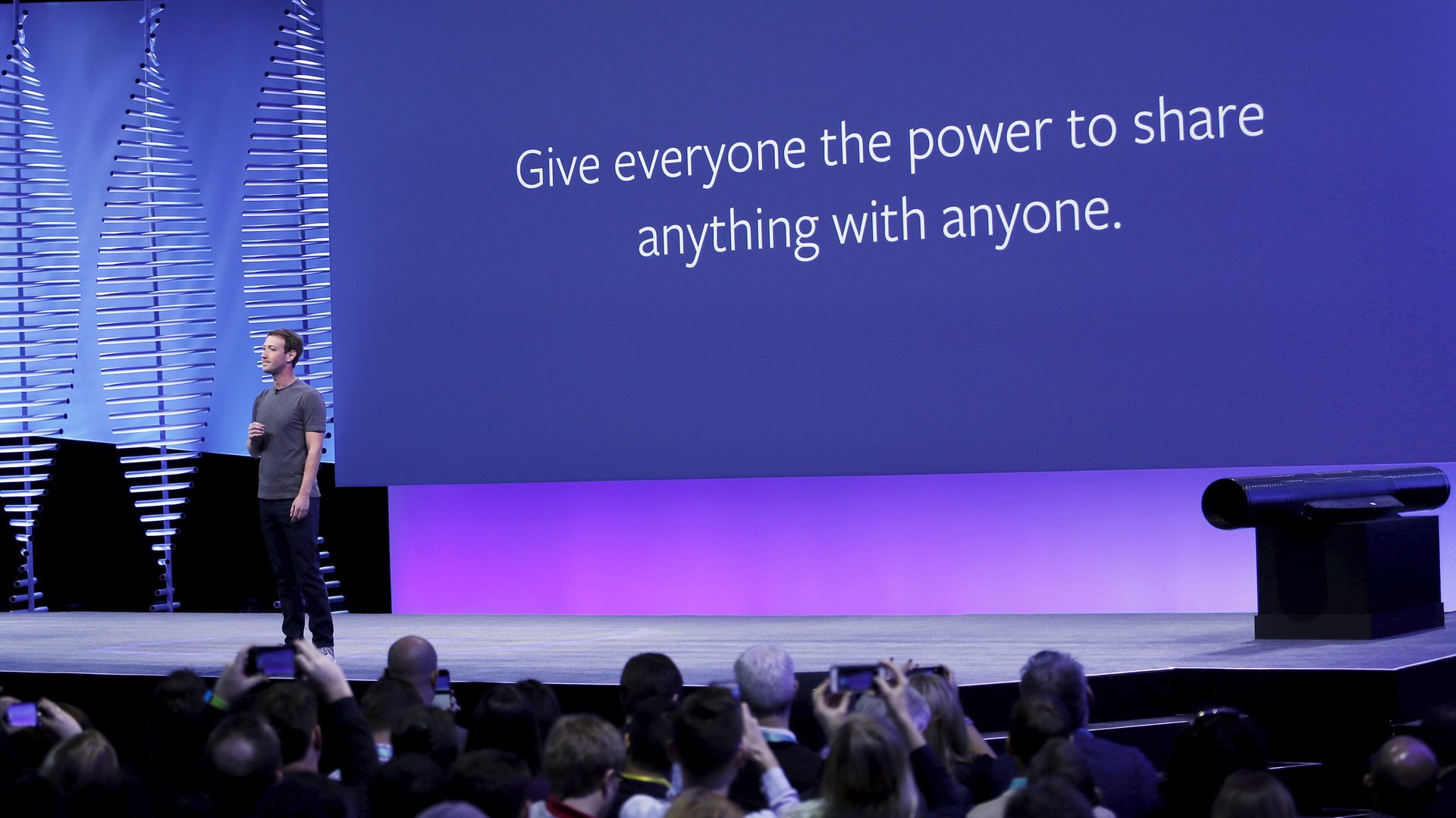Mark Zuckerberg says fake news influencing the US election is “a pretty crazy idea”
People who believe fake news on Facebook influenced the US presidential election are showing a “profound lack of empathy” and are believing in a “pretty crazy idea,” says Facebook chief executive Mark Zuckerberg.


People who believe fake news on Facebook influenced the US presidential election are showing a “profound lack of empathy” and are believing in a “pretty crazy idea,” says Facebook chief executive Mark Zuckerberg.
He made the remarks on Nov. 10 in an on-stage interview at the Techonomy conference in California with former Fortune journalist David Kirkpatrick.
“Personally, I think the idea that fake news on Facebook, of which it’s a very small amount of the content, influenced the election in any way, I think is a pretty crazy idea. Voters make decisions based on their lived experience,” Zuckerberg said.
He added:
“Part of what I think is going on here is people are trying to understand the result of the election, but I do think there is a certain profound lack of empathy in asserting the only way someone could have voted the way they did is because they saw some fake news. If you believe that, then I don’t think you have internalized the message that Trump supporters are trying to send in this election.”
Zuckerberg argued that supporters of both candidates could generate fake news, so it wasn’t clear why it would specifically benefit Trump’s campaign. “The quickest way to refute that this surely had no impact, is why would you think there’s fake news on one side and not the other. We study this, we know this is a small volume,” he said.
Zuckerberg defended his platform’s News Feed algorithm, claiming that it already provides users a diversity of information. The problem is that users don’t click on items with different viewpoints from their own, he said, seeming to reference a 2015 peer-reviewed study by Facebook data scientists.
That study had several problems, including using a sample of Facebook users who identified their political ideology, which isn’t representative of the average user, as University of North Carolina professor Zeynep Tufekci has written.
Throughout the interview, Zuckerberg downplayed Facebook’s role as a gatekeeper of news, saying that his platform merely reflected users’ wishes. Nevertheless, Facebook issued a statement yesterday saying it was working on its ability to detect “misinformation” in its news feed and in its Trending section, which highlights topics users are discussing on the platform.
Despite Zuckerberg’s protestations, Facebook already has a powerful toolkit to deal with fake news. In August, it announced that it was clamping down on clickbait articles with a system that worked like an email spam filter. Zuckerberg said the measures have “dramatically improved” the quality of the News Feed.
Perhaps if those tools had been adapted for the flood of “hyperpartisan” Facebook pages churning out questionable material during campaign season, voters would have had to contend with less noise when they were making their decision at the ballot box.